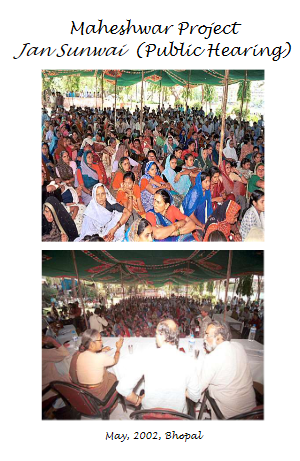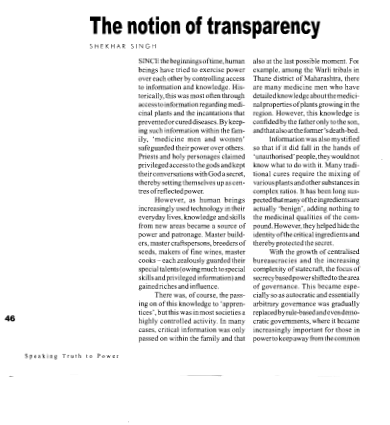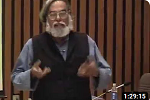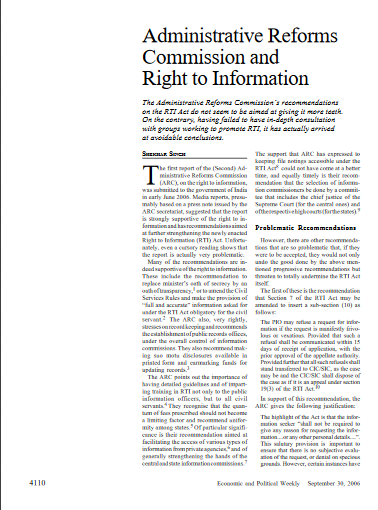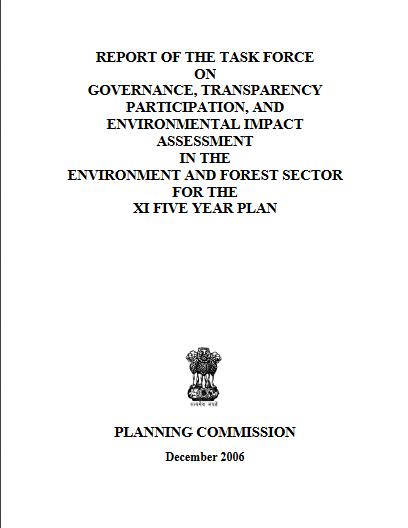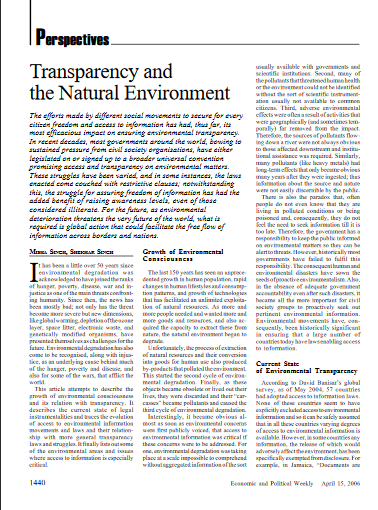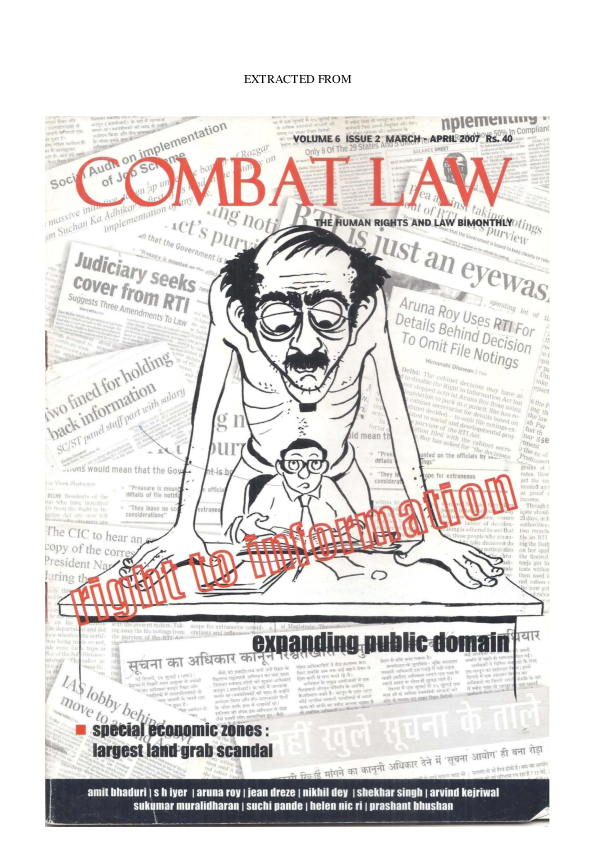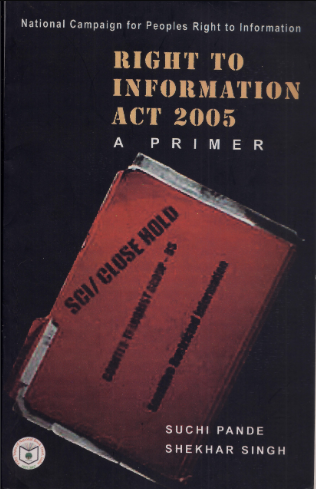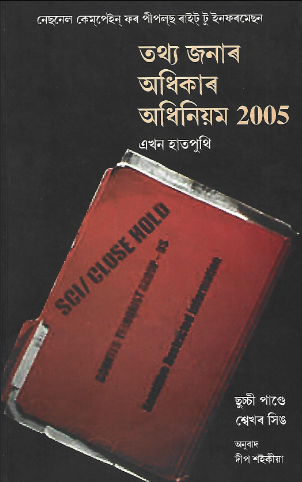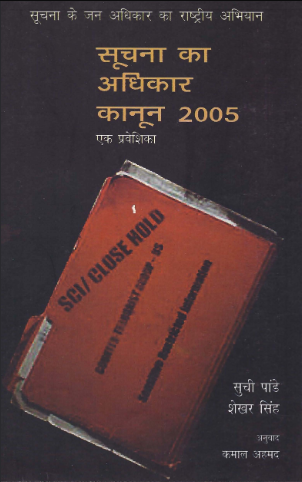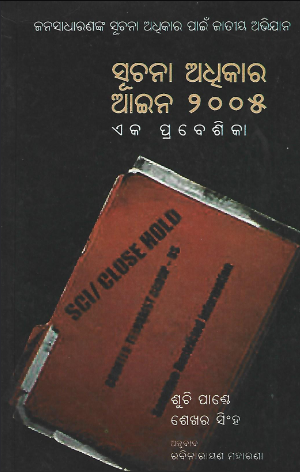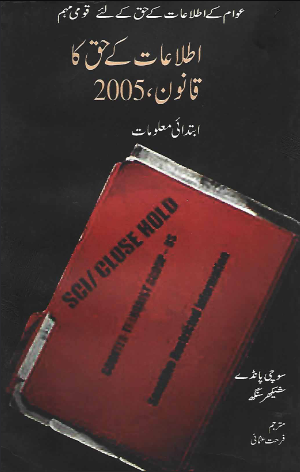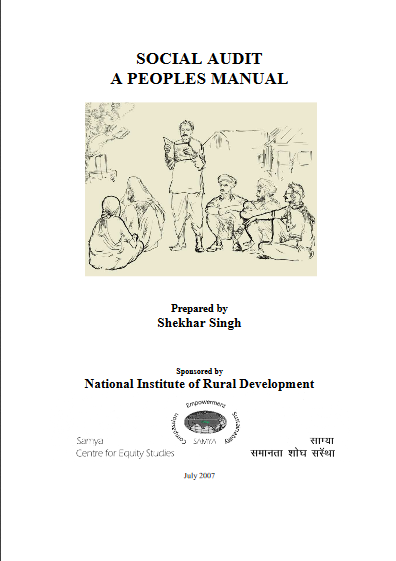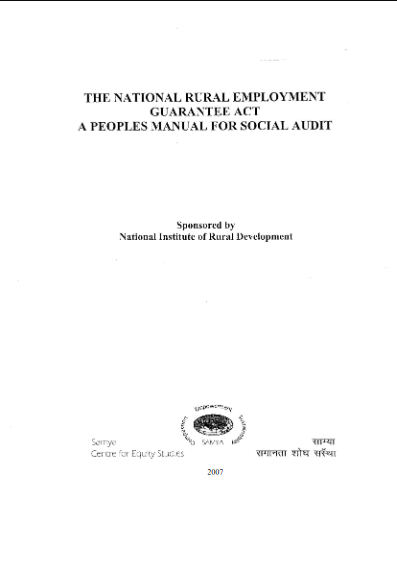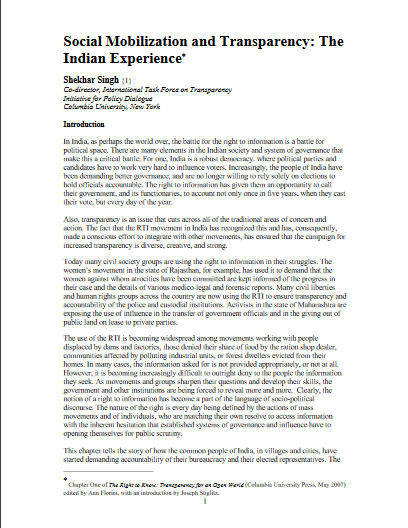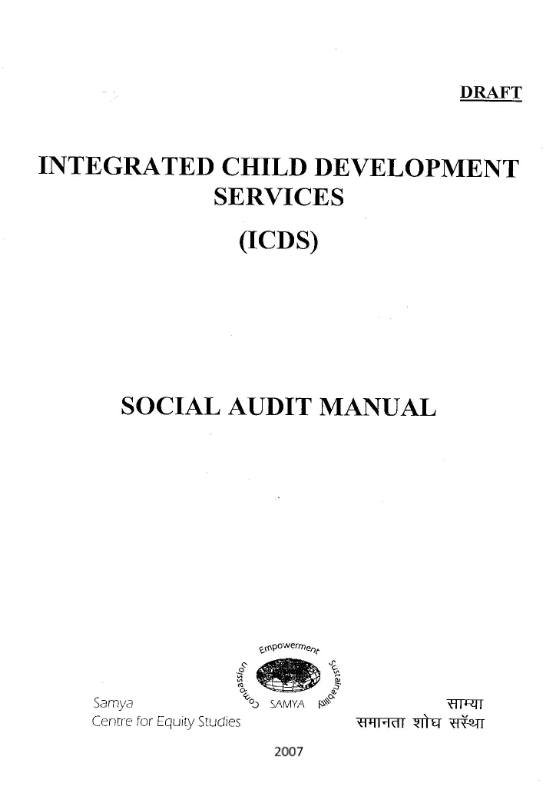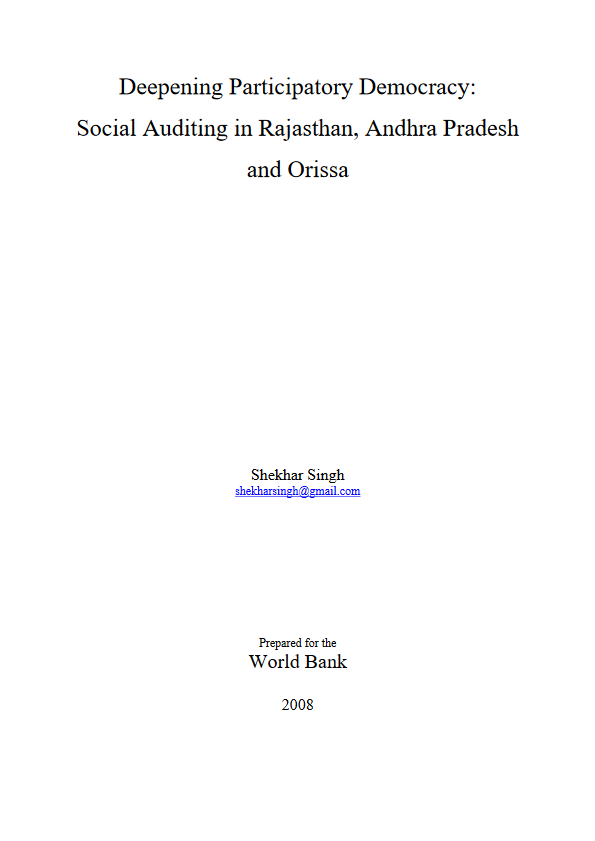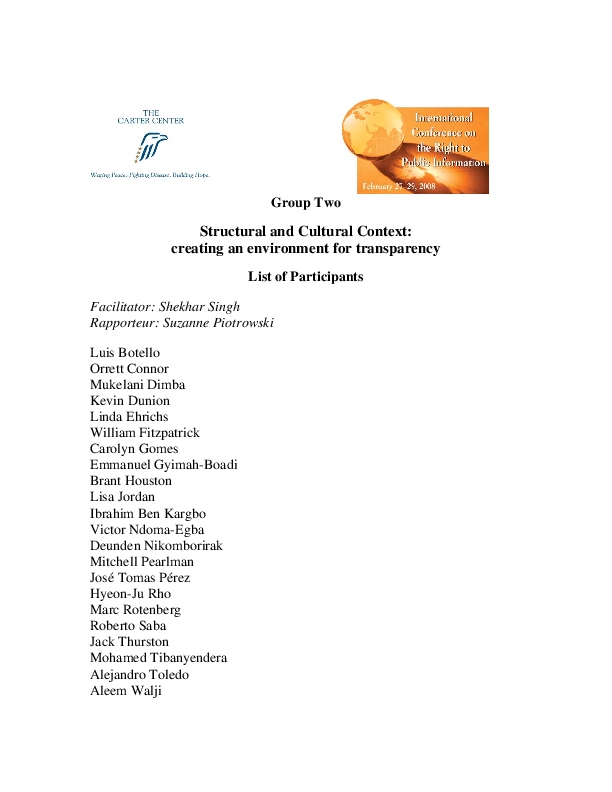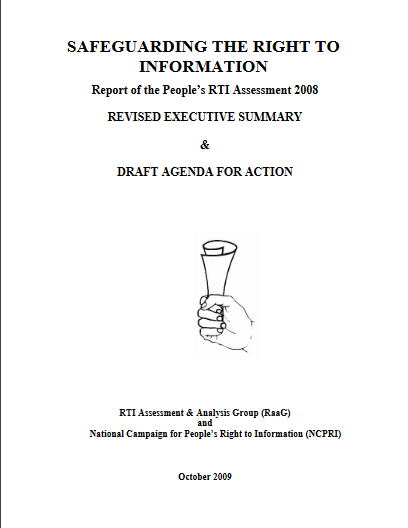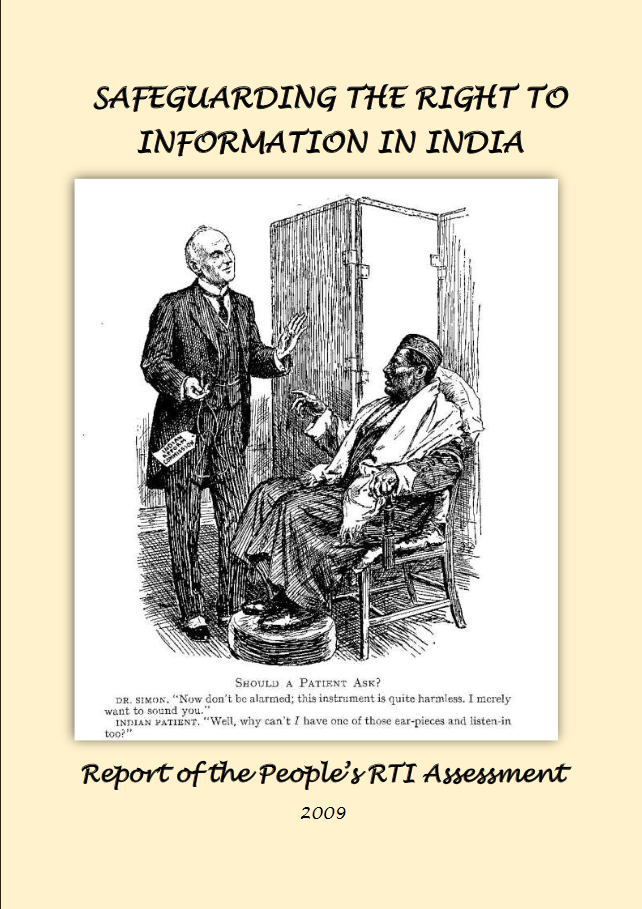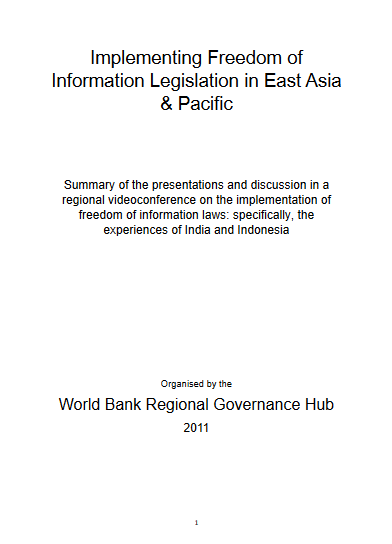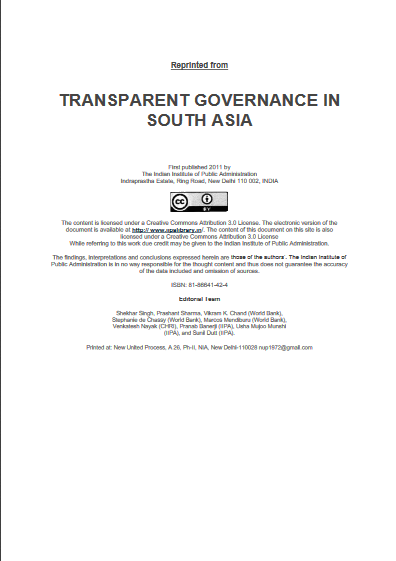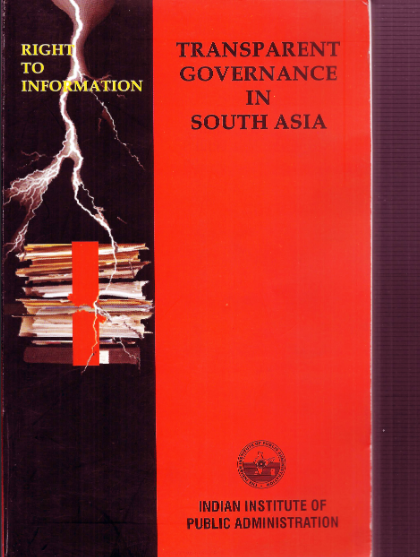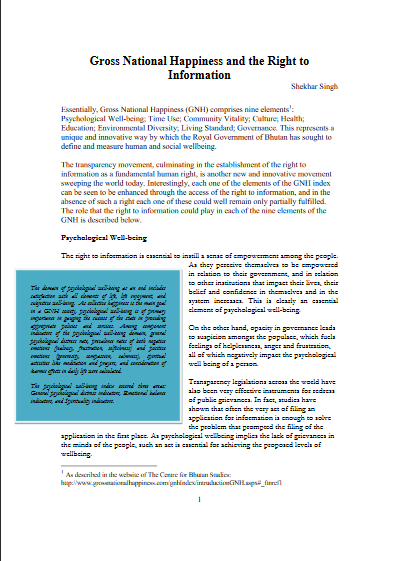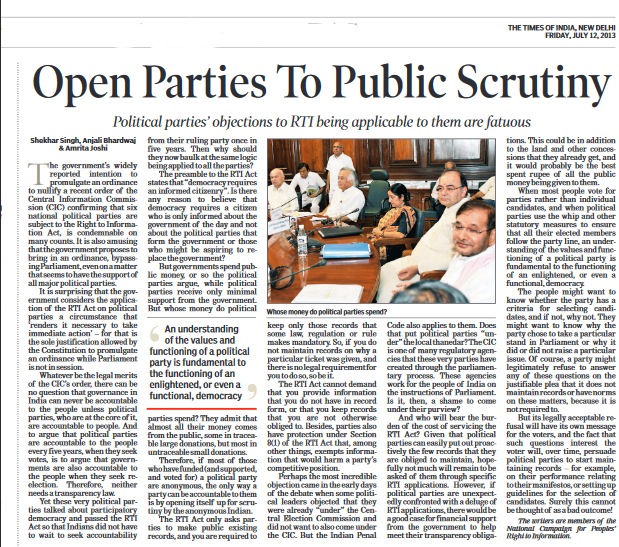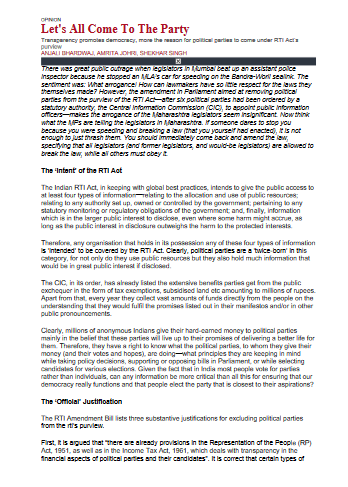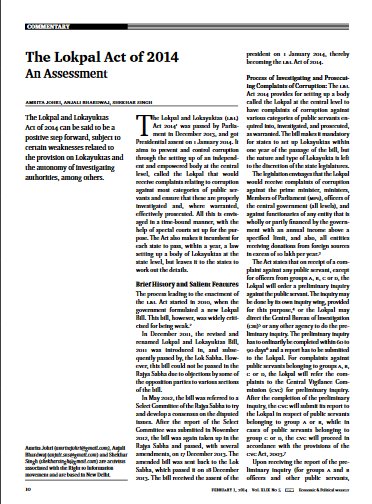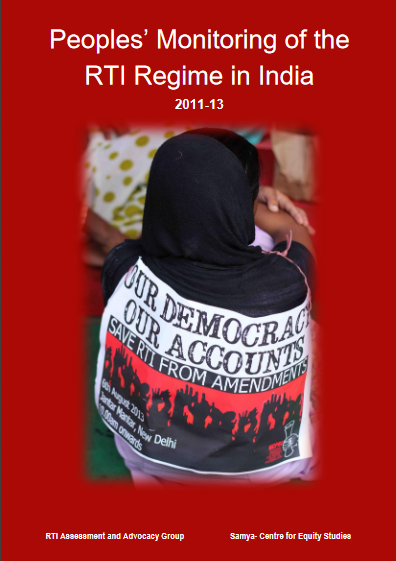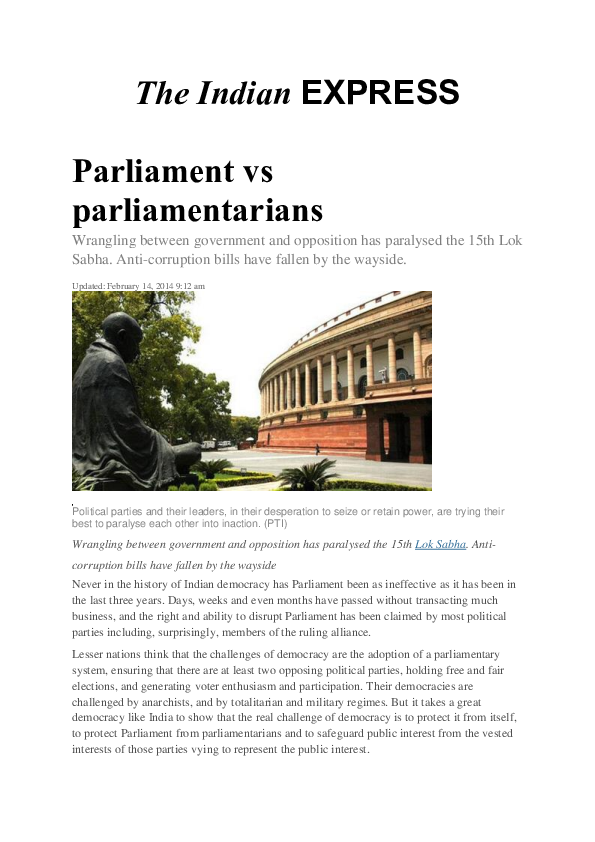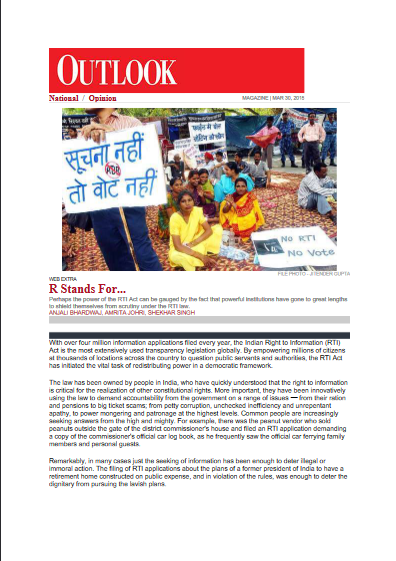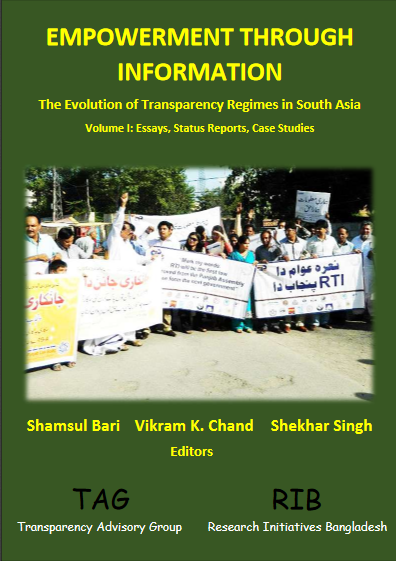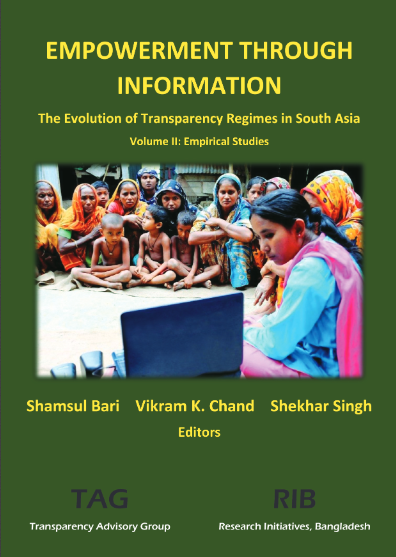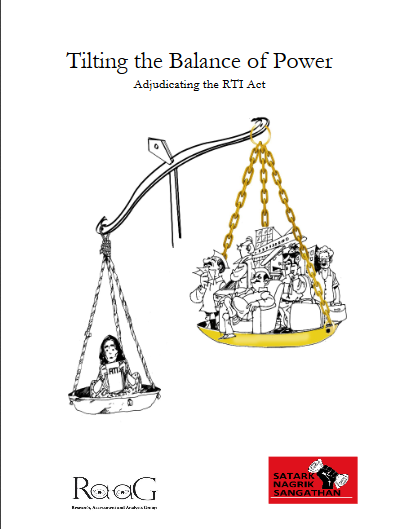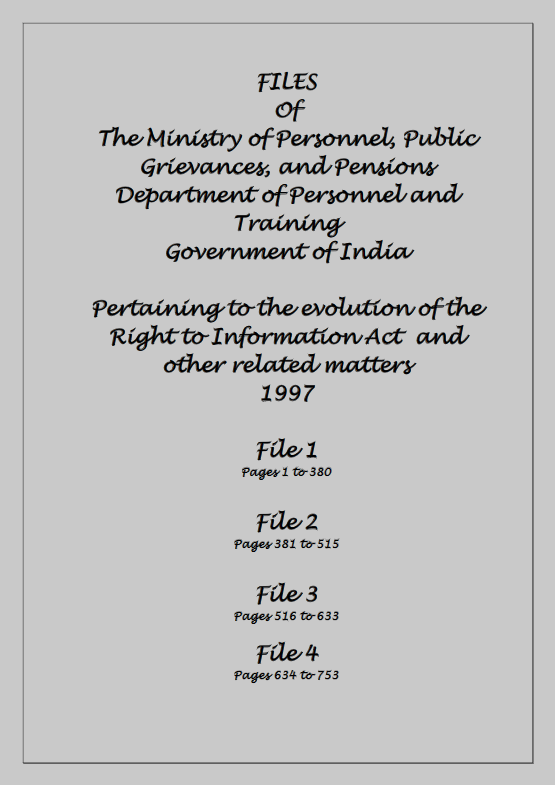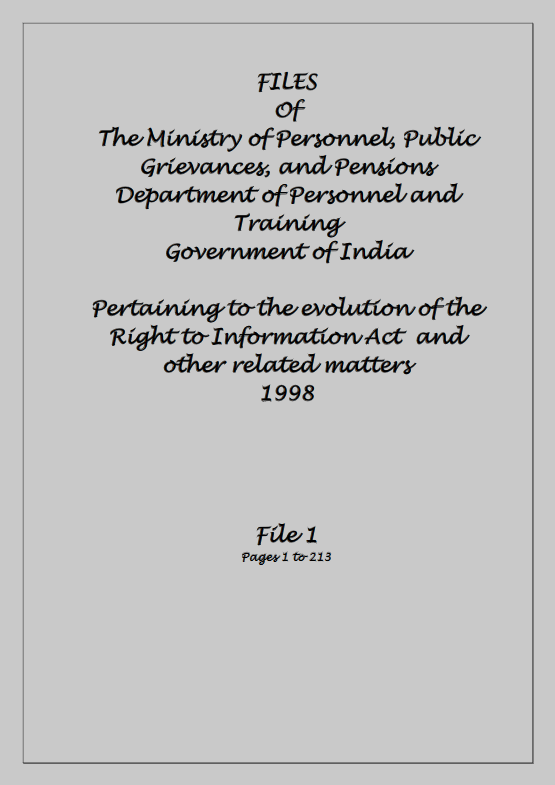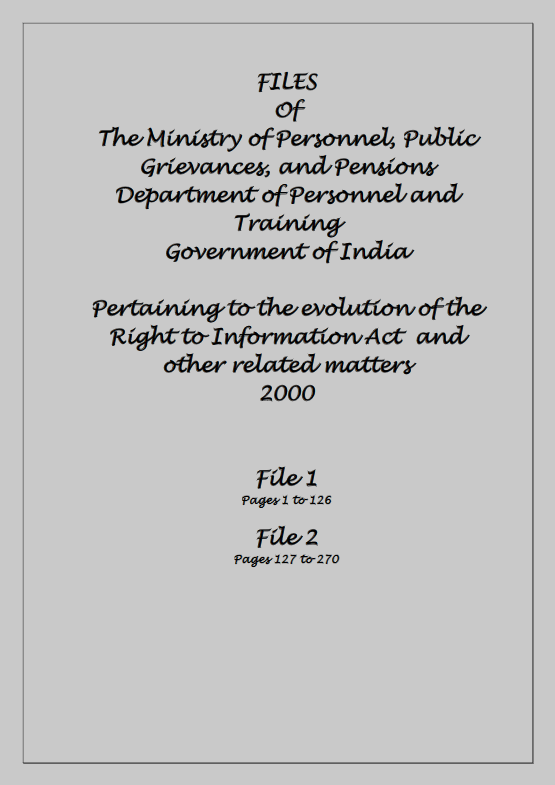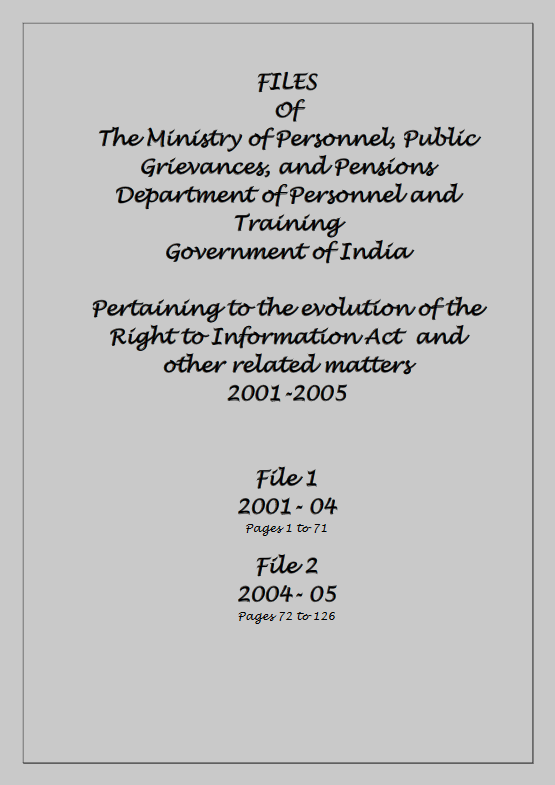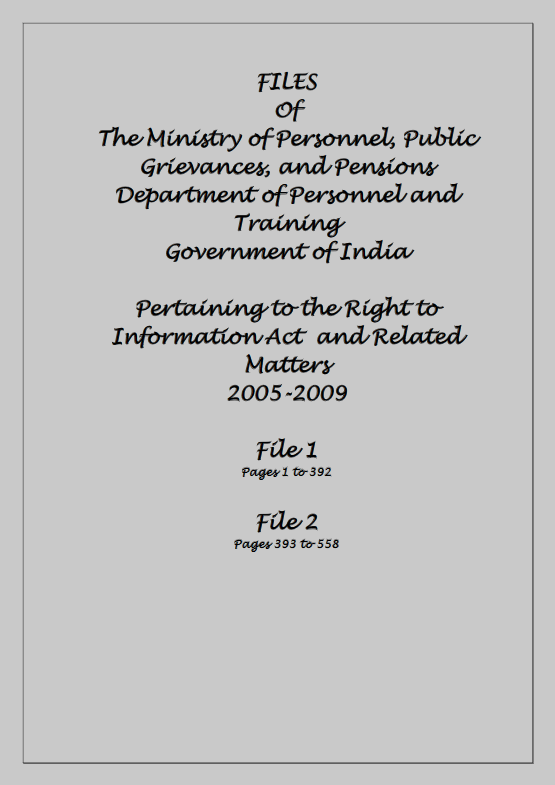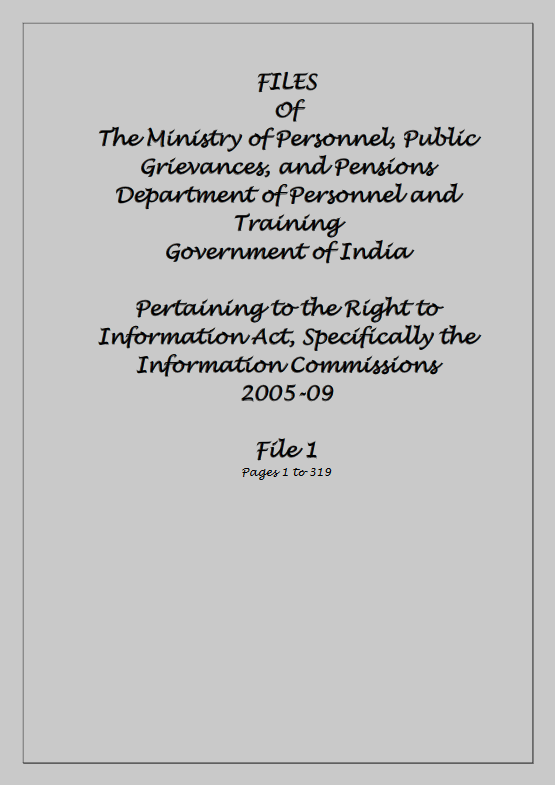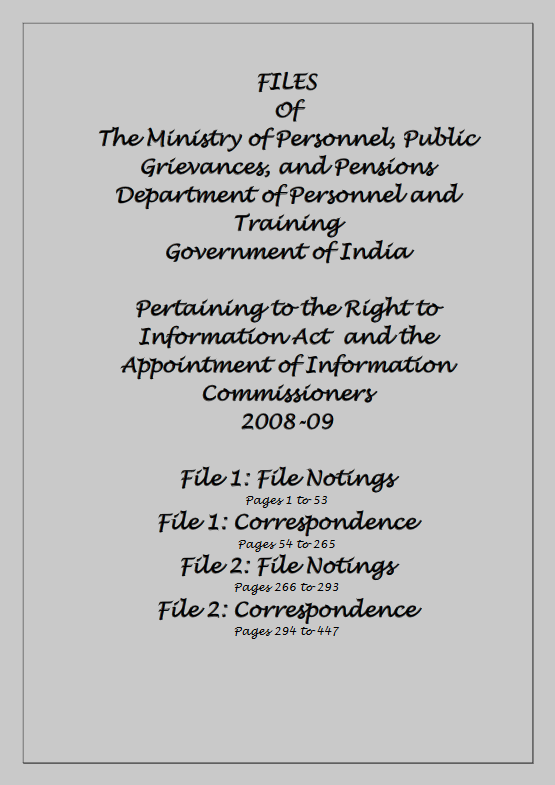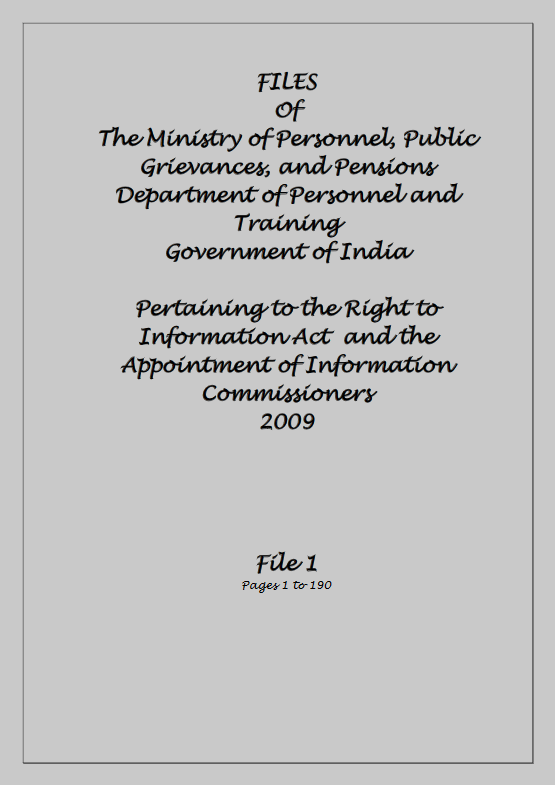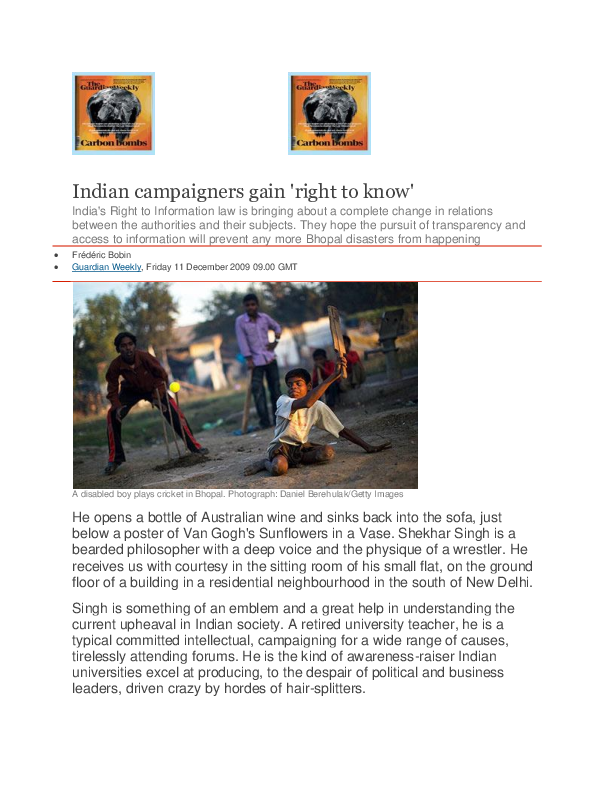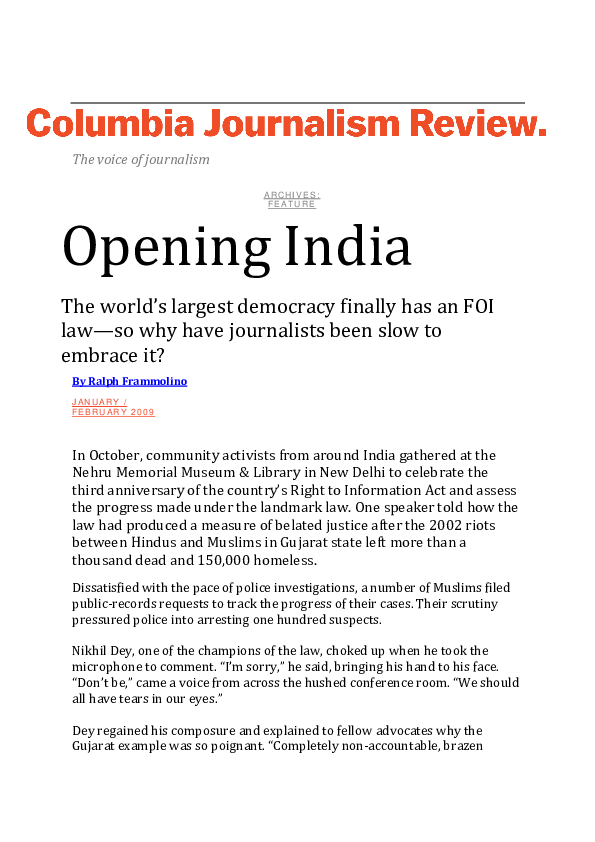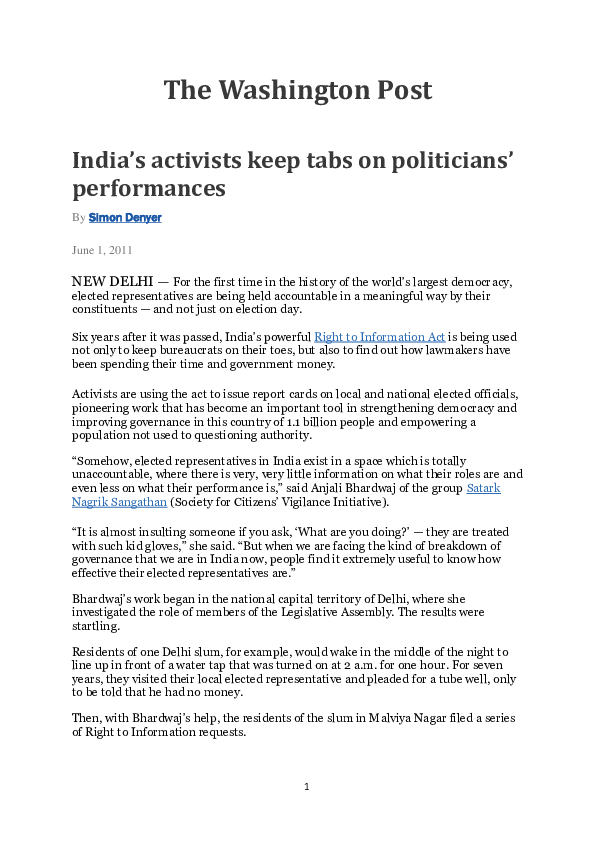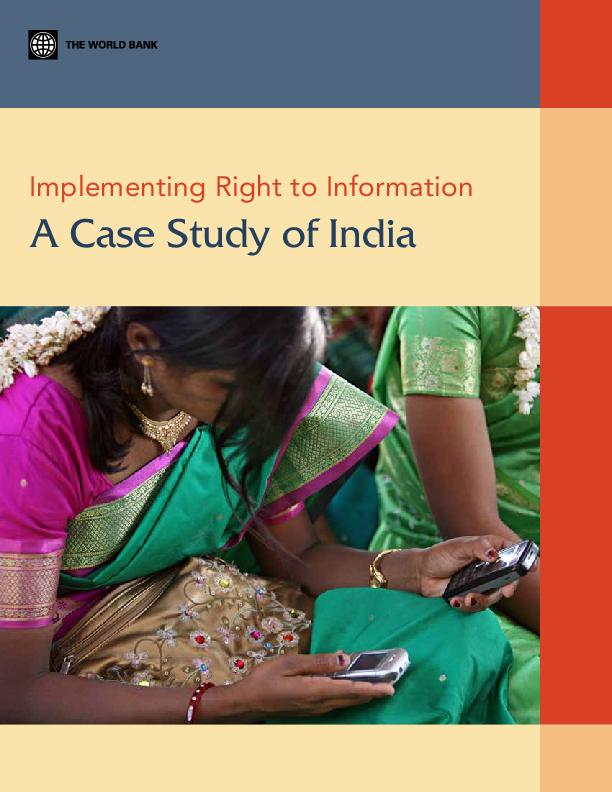Right to Information and Public Accountability
One of the basic tenets of democracy is the ability of the people to determine how they should be governed. The modalities of self-government are many, but by and large most democratic countries in the world have adopted one form or another of representative democracy. This involves the people collectively, or in different groupings or geographical segments, electing representatives who are then expected to interact with their constituencies and represent their choices at the various levels of governance.
Unfortunately, almost from the start, representative democracies have deteriorated into “party democracies” where the loyalty of the elected representatives are , at best, divided between the dictums of their political party and their electorate. In India, with the enactment of the anti-defection law and other related regulations, even the semblance of a representative democracy have been replaced by what can be best called “elected dictatorship”, where all decisions are taken by the party high command and all elected representatives have to toe the line or lose their seats.
In such a reality, which transcends any specific political party, the people of India have to find other, innovative, methods of being heard and of influencing governance. But in order to do that they need, as a minimum, access to reliable and timely information regarding the decisions taken or being taken by the government, the basis for these decisions, the options available, and the safeguards and supervision being applied. Secondly, where they do not agree with, or have serious doubts, about decisions and practices of the government, they must have methods by which they can vocalise these disagreements and doubts, and publicise them.
The National Right to information act, enacted in 2005, was intended to fulfil the first of these needs and ensure public access to information related to governmental processes, decisions, actions and inactions. The Indian RTI act was widely hailed, and rightly so, as one of the strongest transparency laws in the world. It was also unique in that it was drafted by members of the public and lobbied for by various people’s organisations. The documents included here give a detailed account of the formulation of this law.
Unfortunately, its implementation has been compromised because of various problems, mainly unsympathetic information commissions and an unresponsive bureaucracy. There are at least three reports included here which document the problems with the implementation of the law.
A method developed by various people’s organisations to collectively access critical information and to publicly discuss it, actually preceded the enactment of the national law. The passing of the RTI act made this significantly more effective and it acquired the name of “social audits”. These social audits, as can be seen, were not only methods by which information was collected both from the government and from the affected people, especially at the local level, but also provided a forum where this collected information was publicly discussed in the presence, and with the participation, of concerned officials and others relevant functionaries.
Shekhar Singh
To be uploaded:
1. Detailed report of the 2008 assessment of the implementation of the RTI Act.
2. Report of the public hearing related to the Maheshwar Dam.
Documents under Right to Information and Public Accountability
2001 - Towards An accountable and Transparent Government
An early paper summarising possible methodologies for making the government transparent. Download2002 - Report of the Bhopal Public Hearing on the Maheshwar Project
2002 - Report of the Bhopal Public Hearing on the Maheshwar Project Download2005 - Securing the Environment
Scripted in 2005. Shekhar Singh was then convenor of, and Misha Singh a researcherwith, the National Campaign for People’s Right to Information. Download
2005 - The Notion of Transparency
2005 - The Notion of Transparency Download2006 - Right to Information, a video talk by Shekhar Singh at the National Institute of Advanced Studies, Banglore
2006 - Right to Information, a video talk by Shekhar Singh at the National Institute of Advanced Studies, Banglore Download2006 - Administrative Reforms Commission and Right to Information
2006 - Administrative Reforms Commission and Right to Information Download2006 - Governance, Transparency, Participation, and Environmental Impact Assessment
in the Environment and Forest Sector
Report Of The Task Force On Governance, Transparency Participation, And Environmental ImpactAssessment In The Environment And Forest Sector For The XI Five Year Plan View Download
2006 - Transparency and the Natural Environment
2006 - Transparency and the Natural Environment Download2007 - Amendments that can Cripple RTI
A discussion on how the government, in less than two years after passing the RTI Act, is trying to cripple it. Download2007 - Right to Information Act 2005 - A Primer
2007 - Right to Information Act 2005 - A Primer View Download2007 - Right to Information Act 2005 - A Primer - Assamese Translation
2007 - Right to Information Act 2005 - A Primer - Assamese Translation View Download2007 - Right to Information Act - A Primer - Hindi Translation
2007 - Right to Information Act - A Primer - Hindi Translation View Download2007 - Right to Information Act - A Primer - Oriya Translation
2007 - Right to Information Act - A Primer - Oriya Translation View Download2007 - Right to Information Act - A Primer - Urdu Translation
2007 - Right to Information Act - A Primer - Urdu Translation Download2007 - Social Audit - A Peoples Manual
2007 - Social Audit - A Peoples Manual View Download2007 - The National Rural Employment Guarantee Act - A People's Manual for Social Audit
2007 - The National Rural Employment Guarantee Act - A People's Manual for Social Audit Download2007 - Social Mobilization and Transparency - The Indian Experience
2007 - Social Mobilization and Transparency: The Indian Experience∗ Download2007 – Integrated Child Development Services: Social Audit Manual
2007 – Integrated Child Development Services: Social Audit Manual Download2008 - Deepening Participatory Democracy -Social Auditing in Rajasthan, Andhra Pradesh, and Orissa
This paper is an attempt to trace the evolution of the process of social audits from its inception in Rajasthan, to its subsequent incarnation in Andhra Pradesh and Orissa. It also attempts to highlight the differences in the approach adopted in each state and the implications of these differences. View Download2008 - Structural and Cultural Context - Creating an Environment for Transparency
Inputs for an International Conference on the Right to Public Information, organised by the Carter Centre, at Atlanta, USA. Download2009 – Safeguarding the Right to Information – Report of the People’s RTI Assessment 2008 – Revised Executive Summary
2009 – Safeguarding the Right to Information – Report of the People’s RTI Assessment 2008 – Revised Executive Summary Download2009 - Safeguarding the Right to Information in India
2009 - Safeguarding the Right to Information in India : Report of the People’s RTI Assessment 2009 View Download2011 - Implementing Freedom of Information Legislation in East Asia & Pacific
2011 - Implementing Freedom of Information Legislation in East Asia & Pacific Download2011 - The Genesis and Evolution of the Right to Information Regime in India
Transparent Governance In South Asia View Download2011 - Transparent Governance in South Asia
2011 - Transparent Governance in South Asia View Download2011 - Gross National Happiness and the Right to Information
2011 - Gross National Happiness and the Right to Information Download2013 - Open Parties to Public Scrutiny
2013 - Open Parties to Public Scrutiny Download2013 - Lets All Come to the Party
2013 - Lets All Come to the Party Download2014 - Peoples' Monitoring of the RTI Regime - 2011-13
2014 - Peoples' Monitoring of the RTI Regime in India 2011-13 View Download2014 - Parliamentarians vs Parliament
Discusses the fallout, on governance and on the people of India, when political parties try and outsmart each other in Parliament and elsewhere. Download2015 - R Stands For...
2015 - R Stands For... Download2015 - Empowerment through Information - Volume - I
2015 - Empowerment Through Information, The Evolution of Transparency Regimes in South AsiaVolume I: Essays, Status Reports, Case Studies View Download
Files of the Government of India (GoI), Department of Personnel and Training (DoPT), relating to the Right to Information - 1997 to 2009
Files of the Government of India (GoI), Department of Personnel and Training (DoPT), relating to the Right to Information - 1997 to 2009
Files of the Government of India (GoI), Department of Personnel and Training (DoPT), relating to the Right to Information - 1997 to 2009
INTRODUCTION
Given below are copies of Government of India (GoI), Department of Personnel & Training (DoPT) files relating to the right to information (RTI) or freedom of information, as it was earlier referred to. This collection consists of fifteen files, arranged in eight bundles, separately for each year or, where files cover more than one year, together for two or more consecutive years. The last three bundles, apart from being organised year-wise, also specifically deal with the setting up and staffing of information commissions.
In total they comprise nearly 3000 pages of correspondence and notes (or file ‘notings’, as they are popularly known). These have been accessed by various RTI activists, over the years, using the RTI Act, and I am particularly grateful to Amrita Johri, Anjali Bhardwaj, and Prashant Sharma for sharing these documents with me. I am grateful to Chandra Kaushal and Rubina Mondal for helping me organise and scan these files.
Unfortunately, these files are not well organised, as is usually the case with government files, and there are many gaps and misplaced pages. This is aggravated by the fact that it seems that some pages have been removed from the files before they were made available to the RTI applicants. Also, they have not been properly photo-copied and many pages are partly or wholly illegible.
Nevertheless, they give an interesting glimpse into how civil servants, political leaders, and even NGOs and activists have thought and acted when faced with the prospect of adopting a more open system of governance. As examples of the thinking of prominent political leaders, your attention is specifically drawn to a 2005 letter from Narender Modi, who was then Chief Minister of Gujarat, to the then Prime Minister (pages 496-498, file: 2005 DoPT) Also, you might like to see the 2005 letter from Abdul Kalam, the then President of India, to the then Prime Minister, and the response of the Prime Minister (pages 536 to 542, file: 2005 DoPT).
Another interesting fact is that in the files leading up to the enactment of the RTI Act (October 2005), almost every page in the file was marked ‘SECRET’, making it impossible for any ‘unauthorised’ person to either read it or be in possession of it, without attracting the very stringent provisions of the Official Secrets Act, till the RTI Act came into force. The frequency with which even routine correspondence was marked secret also highlighted the crying need for an RTI Act.
Three sets of files, from 2005 to 2009, deal almost exclusively with the setting up of the information commissions and the appointment of central information commissioners. These files illustrate that there was little application of mind or even the semblance of fair-play in the selection of central information commissioners. Though hundreds of applications were received for these posts, the files only contain curriculum vitae of serving or retired high-ranking government servants and letters of recommendation from political and administrative VIPs. There is no record of any process by which the other applicant’s names were considered and, inevitably, the ICs were chosen from among these high ranking officials or those recommended by a high-ranker!
Happy reading.
Shekhar Singh
2022

